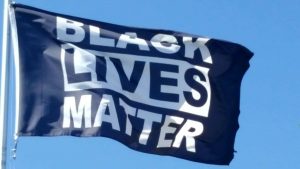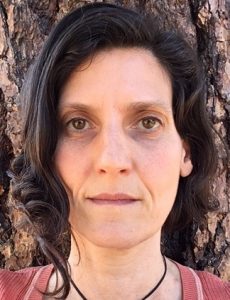Intervening in Racism; Key to Cultural Change

As Black America stands up and refuses to take any more government licensed brutality, joined by other people of color and white allies, all of us are called to assess our values and what we contribute to immanent cultural change. Over the past four years, I have been pessimistic about the direction of that change. Now, the abundant energy of the Black Lives Matter protests, fueled by the financial deprivation and confinement of the Covid crisis (which disproportionately hits African and Native Americans) gives me real hope.
Racism
Racial oppression, beginning with colonialism, genocide and slavery, and continuing with mass incarceration of people of color today, is an integral part of US and global culture. It shares common roots with all the scourges of our world: misogyny and rape culture, homo-and-transphobia, capitalist greed and poverty, cultural genocide, ableism and environmental destruction. It is far broader than the horrific murders of George Floyd, Breonna Taylor and so many others. Everyday racism, from physical violence to microaggressions that white people don’t notice on systemic and personal levels, is a constant pressure on people of color. It is a massive public health crisis.
Racism has been with us a long time. It is taking, and will continue to take, a lot of work to uproot and change. White people need to step up more, face our responsibility and work harder for that change.
Cultural Myths
C.G. Jung worked with individuals on lifelong patterns through the lens of a life-myth, symbolized in an early dream or memory. In Processwork, we also apply this to groups, organizations and whole cultures.
Our cultural myths appear in the stories we tell. Novels, movies and songs can be seen as our collective nighttime dreams, while the bigger tales; religious texts and origin stories are symbolic of our cultural trajectory.
Old Stories
In the oldest stories, humans are part of nature. Other species have equal importance, and spirit is present and inseparable from the material world. Native American nations of the southwest tell how Coyote creates the world. In the northwest it is Raven, who also brings light. In Indigenous Australian wisdom Dreamtime gives rise to our reality, co-created by animals, plants and rocks. Nature is sacred, and humans are dependent on her. Ancient Celtic stories, and old stories from African and Asian countries contain a similar profound reverence for all life.
The essence experience of wonder about existence, the awe and understanding that another being – whether flower or human – is as amazing as ourselves, is key. When we live from this place, debasement and impersonal violence are not possible.
Myths That Disconnect Us
In contrast, the Judeo-Christian-Islamic story of Genesis places humans above nature and separates out spirit and wonder. Many interpret Adam’s stewardship of other species as license or even a mandate to use, abuse and destroy. Too often white people extend this to humans they see as different from themselves.
The elevation of white European style culture over nature and other peoples can also be understood from the many stories where a Christian figure destroys a wild beast. These stories include Beowulf and Grendel, St George and the Dragon, and St Patrick expelling the snakes.
Until recently, science hasn’t given us a better alternative. Our current materialism tells a sterile story of the big bang and a meaningless, chemical origin of life. It’s a short step from this to nihilism and apathy. Senseless consumerism and numbing to disaster and harm to others are not a necessary consequence of scientific materialism, but without dedication to humanist ethics, it is where many of us live.
New Return to Old Wisdom
It’s time for a new cultural myth, or return to old and indigenous ones. There is room to reinterpret Genesis as God entrusting humans with responsibility to care for nature, not dominate her. Christians can refocus on Christ’s actual core message; equality and love for all.
Quantum science and many psychologies are re-centering consciousness in our understanding of life. Reflecting back wisdom present in Indian traditions for thousands of years, as well as indigenous knowledge the world over, new science tells us consciousness is the foundation of existence.
If we choose to live and relate from knowing all things are conscious, we will have a wondrous relationship to everything. It will be much harder to cut off our innate sense of empathy, the curiosity and sense of connection that all children show.
We need to adopt global cultural myths that guide us to actively care what other people experience.
Practical Tools
On a more practical level, Processwork also gives us tools for understanding and working with the roles present in oppression. These roles are similar whether on a systemic level, in a specific situation, or even within an individual.
Roles
The roles of oppression are victim, perpetrator and witness. In systemic racism, those roles are inhabited by people of color, white supremacy groups including corrupt police and other agencies, and the public and political systems. It is not enough that only people of color and some white people bear witness and understand racial oppression. All white people need to shoulder our responsibility, be present and make change.
When the witness goes beyond observing and intervenes in the abuse, they change the whole story and shift us from the myth of disconnection into our essence of caring for all life. They connect us to our new and ancient myths and create sustainable cultural change.
Role Transformation
As the witness tranforms into the intervener – and in the case of systemic oppression the public and political systems are by far the most powerful part – the oppression is halted. The victim role can begin to transform to the thriver, and the perpetrator also has the opportunity to change. If they decide to, the perpetrator can use their power for the common good instead of against it. St. George, instead of slaying the dragon can choose to be a noble protector.
Inner Roles
These roles also live inside us as internalized oppression. In her excellent TED talk, Zed Xaba describes working on internalized racial oppression.
White people who work to be allies also have racist parts inside us, as well as our own internal oppression, which comes out unconsciously and harms people of color. We have to do our inner work too.
Inside the white supremacist, these roles also play themselves out. It is traumatic to teach a child to hate other humans. The adult that child becomes must continuously oppress their innate sensitivity to maintain that hate.
Change is Coming
In this moment, as I hear helicopters again over the protests in the city of Portland, our cultural witness role has stepped into the intervener against systemic racism.
Everyday people are flooding the streets of 430 US cities and many other cities worldwide in sustained response to the brutal murder of George Floyd. Many city and local governments are responding to this call. Our current federal government may not be able to hear, care or shift, but as described in the Chinese classic the I Ching, in times of change, what is too rigid will eventually break.
Take Action:
Please consider donating to Black Lives Matter, or to a local organization such as Don’t Shoot Portland
Support black owned businesses countrywide and local to Portland
Further Resources:
Join this online anti-racism training by Raggi Kotak, Challenging the Dynamics of Racism
Learn about racism as a public health crisis at Right to Health
Learn about internalized oppression from Zed Xaba
Reading and other resources, and other organizations to support can be found here, here and here
by Elva Redwood, MA, PW Dipl., Managing Editor
Elva Wolf Redwood is a Processwork Diplomate practicing with individuals, couples and organizations in Portland, Oregon, USA, and on-line. They are a writer and a lover of dogs, fermented foods and knitting. They repeatedly commit to intervening in oppression of all kinds, wherever they find it, and to work on climate justice. They are drawn particularly to work with artists, activists, culture changers and anyone addressing developmental trauma.
Pronouns: them/they/their



